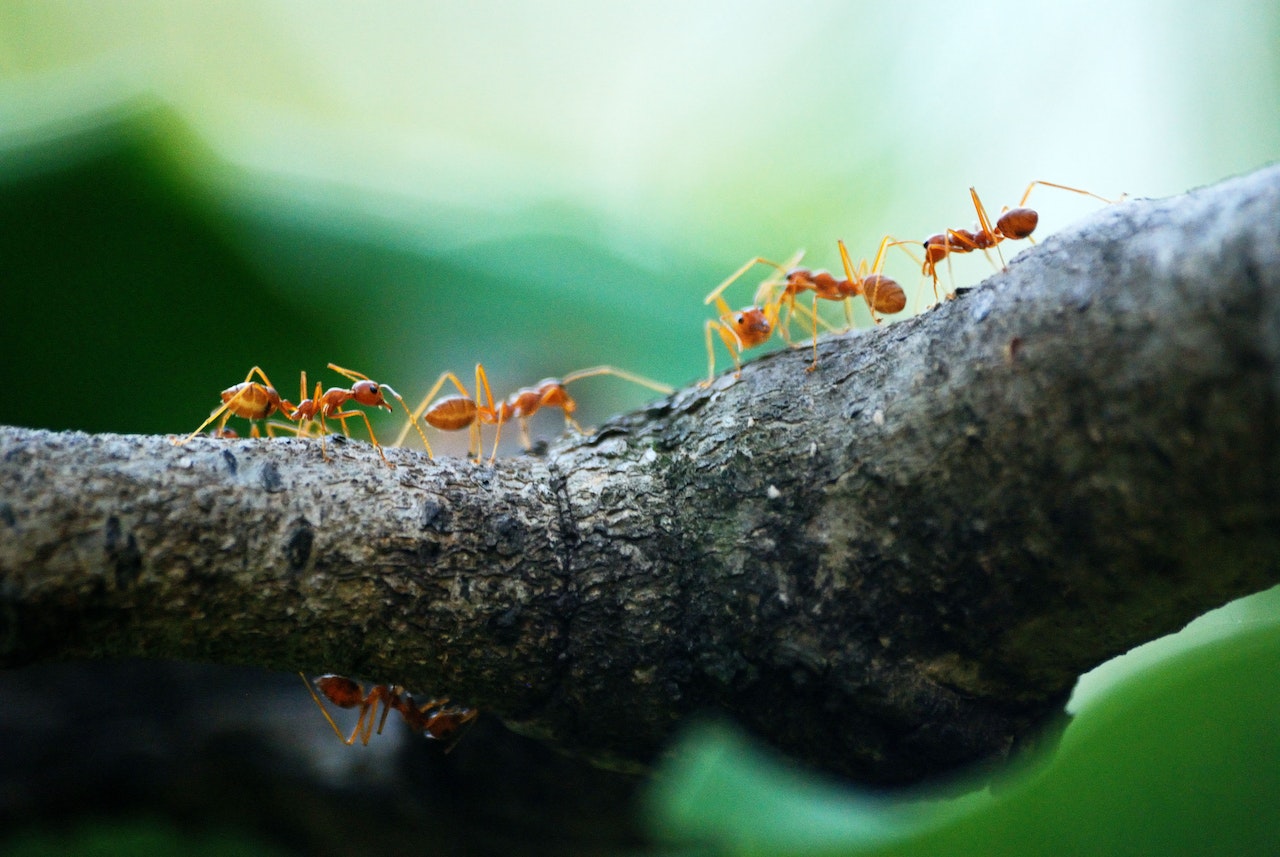Keeping Ants Away from Your Blackberry Bushes and Garden
Ants are an inevitable part of gardening, but when their populations become overwhelming and start invading your blackberry bushes and other plants, it’s time to take action. Fortunately, there are natural and eco-friendly methods that can help you deter ants from your garden without resorting to harsh chemical applications. In this guide, we’ll explore various techniques to keep ants at bay and protect your precious produce.
1. Ant-Repelling Plants: Your First Line of Defense
Using certain plants strategically in your garden can act as a natural deterrent for ants. These plants release scents that ants find unpleasant, making them less likely to invade your garden. Some of the best ant-repelling plants include:
- Rosemary
- Lavender
- Catnip
- Peppermint
- Mint
- Thyme
- Tansy
Additionally, planting garlic can offer effective protection against these pests. Incorporating these herbs into your garden not only helps deter ants but also adds beauty and flavor to your landscape.
2. Natural Remedies for Ant Control
When ant populations get out of hand despite having ant-repelling plants, it’s time to try other natural remedies. These remedies are safe for plants, pets, and humans, making them ideal for maintaining a healthy garden. Here are some options to consider:
- Cinnamon: Sprinkle cinnamon over your garden to create a barrier that ants won’t cross. While slightly more expensive than other options, it’s a potent ant repellent.
- Lemon Juice: Dilute lemon juice with water in a 50/50 ratio and spray it liberally around affected areas. The acidity of lemon juice disrupts the scent trails that ants rely on for navigation.
- Vinegar: Mix equal parts of vinegar and water (50/50) and apply it to ant trails and hills. Vinegar disrupts the scent trails and may kill ants on contact. Test a small area before applying to delicate leaves.
- Cayenne or Black Pepper: Sprinkle cayenne or black pepper directly on the soil or create a water solution (2 tablespoons per 1 cup of water) to spray over the garden. These spices act as deterrents and discourage ants from colonizing your plants.
3. Organic Food Grade Diatomaceous Earth (DE)
Diatomaceous earth is a talc-like powder made from fossilized marine phytoplankton. Surprisingly, DE is safe for human consumption and widely used in various grain-based foods to keep pests at bay. To deter ants, apply DE directly to ant hills and trails. You can also prevent ants from entering your garden by sprinkling DE around its perimeter occasionally throughout the growing season.
Conclusion
While pests, including ants, are a normal aspect of gardening, they don’t have to become overwhelming invaders. By utilizing ant-repelling plants, natural remedies, and organic diatomaceous earth, you can manage ant populations effectively and maintain a thriving and pest-free garden. Protect your beloved blackberry bushes and other plants with these eco-friendly and safe methods, and enjoy a happier and healthier garden for you and your plants. Happy gardening!
Frequently Asked Questions (FAQs)
1. Are ants harmful to my blackberry bushes and garden?
While ants can be a nuisance and may spoil the appearance of your garden, they are not generally harmful to blackberry bushes or plants. In fact, some ants can be beneficial as they help aerate the soil and contribute to the decomposition of organic matter. However, when ant populations become excessive, they may disrupt the ecosystem balance and attract other pests. Using natural ant deterrents can help maintain a healthy garden without causing harm to the ants or your plants.
2. Can I use chemical pesticides to get rid of ants in my garden?
Using chemical pesticides may effectively eliminate ants, but it can also harm beneficial insects and pollinators in your garden. Moreover, some chemical pesticides may leave residues on your produce, posing potential health risks. To protect the environment, wildlife, and your family’s well-being, it’s best to opt for natural and organic ant control methods, such as ant-repelling plants and diatomaceous earth.
3. How frequently should I apply natural ant deterrents in my garden?
The frequency of applying natural ant deterrents depends on the severity of the ant infestation and the specific method you’re using. For ant-repelling plants, ensure they are well-distributed throughout your garden to maintain their effectiveness. When using remedies like cinnamon, lemon juice, vinegar, or pepper spray, reapply them as needed, especially after heavy rainfall or watering. Diatomaceous earth can be reapplied periodically or when you notice an increase in ant activity. Regular monitoring of your garden will help you determine the most suitable frequency for applying these natural solutions.

Leave a Reply